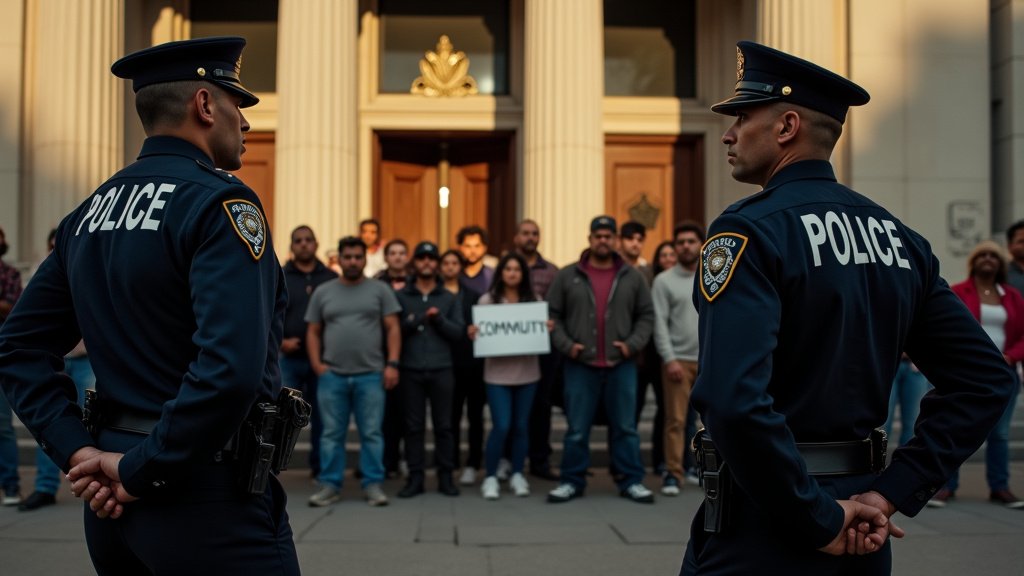Washington D.C. and Frankfort, Kentucky – The U.S. Department of Justice (DOJ) has intensified its challenge to state policies granting in-state tuition benefits to undocumented students, filing a federal lawsuit against officials in Kentucky. This legal action arrives amidst ongoing resistance in Texas, where students and advocates are contesting the recent swift termination of a similar decades-old state law following a separate DOJ suit.
The move underscores the Biden administration’s broader effort to enforce federal immigration statutes concerning public benefits, particularly in the realm of higher education access for individuals without lawful presence in the United States.
Federal Challenge Launched in Kentucky
The DOJ’s complaint, filed in the U.S. District Court for the Eastern District of Kentucky, directly challenges a state regulation that permits certain noncitizens, including undocumented students, to pay the lower in-state tuition rates at public colleges and universities. The lawsuit names prominent state education figures and the state’s chief executive, specifically targeting Democratic Governor Andy Beshear, Commissioner of Education Robbie Fletcher, and the Kentucky Council on Postsecondary Education.
The core of the DOJ’s legal argument rests on the assertion that Kentucky’s policy violates federal law. According to the complaint, providing a benefit like in-state tuition to “aliens not lawfully present” while simultaneously denying that same benefit to U.S. citizens from other states constitutes a breach of federal statute. This legal principle posits that states cannot offer a preferential benefit to certain noncitizens that is not available to citizens of other states.
Following the Texas Precedent
The action in Kentucky mirrors a recent successful challenge by the DOJ in Texas. Earlier this month, Texas state officials quickly settled or conceded to a DOJ lawsuit targeting its own two-decade-old law that had allowed undocumented students graduating from Texas high schools to qualify for in-state tuition. This swift agreement paved the way for U.S. District Judge Reed O’Connor to issue a permanent injunction, effectively ending the Texas policy within hours of the ruling.
Critics swiftly labeled Texas’s rapid agreement with the DOJ lawsuit as “collusive,” suggesting a lack of genuine defense against the federal challenge. The outcome in Texas served as a clear signal of the DOJ’s legal strategy and its willingness to pursue similar policies in other states.
U.S. Attorney General Pamela Bondi notably referenced the Texas outcome when discussing the Kentucky suit. “We just won on this exact issue in Texas,” Bondi stated, signaling the department’s confidence and its intention to replicate that success in Kentucky.
Student and Advocate Pushback in Texas
While the legal battle unfolds in the courts, the policy change in Texas has sparked significant pushback from students, educational institutions, and immigration advocates. Many students who had relied on the in-state tuition rate to afford higher education now face drastically increased costs, potentially jeopardizing their ability to continue their studies. Advocacy groups are exploring legal avenues and organizing to challenge the injunction and advocate for the reinstatement of the policy or the creation of alternative solutions.
The rapid dismantling of the Texas law, which had been in place for twenty years, highlights the fragility of such state-level accommodations in the face of federal legal challenges. The student fightback in Texas serves as a potent example of the human impact of these policy shifts and the organized resistance they can provoke.
A History of Legislative Attempts
The legal challenges brought by the DOJ are not the first attempts to end in-state tuition access for noncitizens in these states. In both Texas and Kentucky, Republican lawmakers have previously attempted to pass legislation aimed at preventing noncitizens from accessing these benefits through the state legislative process. These efforts, however, had not succeeded in repealing the existing policies before the DOJ intervened through federal litigation.
The federal government’s decision to use the court system to challenge these state regulations represents a different approach than state-level legislative debates. It bypasses the state political process and frames the issue purely through the lens of federal law supremacy and immigration authority.
Broader Implications
The outcome of the lawsuit in the U.S. District Court for the Eastern District of Kentucky will have significant implications for undocumented students in that state and could set a precedent for similar policies in other states. The legal battle centers on complex interpretations of federal law regarding public benefits for non-citizens and the extent to which states can enact policies that differentiate based on immigration status compared to out-of-state citizenship.
The DOJ’s success in Texas, coupled with its new lawsuit in Kentucky, signals a determined effort by the federal government to curtail state-level provisions that grant benefits like in-state tuition to undocumented immigrants. As the legal proceedings in Kentucky commence, the focus remains on how the courts will interpret federal statutes and balance them against state-level decisions regarding higher education access, while students and advocates continue their fight for affordable education.






